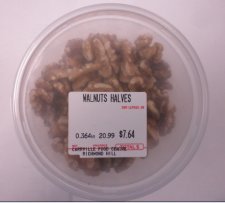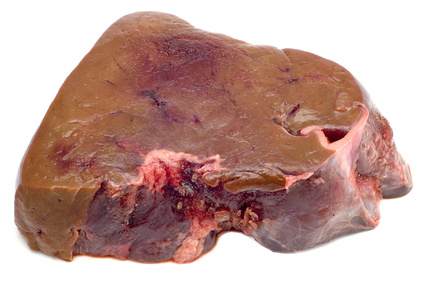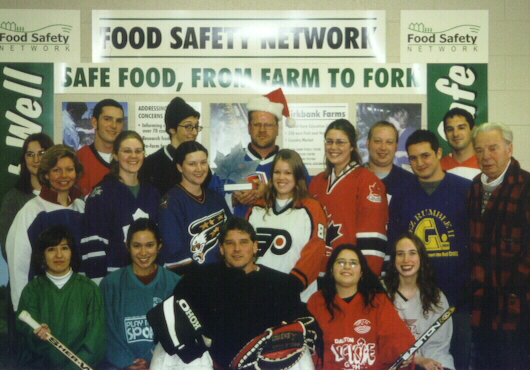Auditors, certifiers, validators, grease monkeys, soil farmers, they’re all supposed to make things better.
But claims are nothing more than claims in the absence of data.
And anyone who has to say, “trust me,” is immediately untrustworthy.
So when Laura Telford, executive director of the Canadian Organic Growers, told Canadian news types a couple of weeks ago, “I’m not certain the world needs to know the exact reason why this company lost its certification. I personally feel that its enough to know that CFIA is doing its job … .jpg) and when a company is not following the rules, there will be consequences,” howls of cynical guffawing ensued among those familiar with the Canadian Food Inspection Agency.
and when a company is not following the rules, there will be consequences,” howls of cynical guffawing ensued among those familiar with the Canadian Food Inspection Agency.
A few weeks ago, Lynne Moore reported in the Montreal Gazette that on June 30, 2009, the Organic Products Regulations came into effect under the Canadian Food Inspection Agency.
The regulations provided for a transition period, a two-year span that would allow everyone to align their operations to the new reality and take care of practical matters such as using up existing packaging.
In a July 27, 2011, notice, the Canada Organic Office said Jirah Milling and Sales Inc., of Ormstown, Que., was no longer authorized to market organic products or use the Canada Organic logo (the logo that would now be recognized by the U.S. and the EU).
The notice of suspension of organic certification was sent to industry and certification bodies, but the document was not publicly disseminated by the federal body on a website or via a media release.
The Montreal Gazette found the government’s suspension notice about one of Eastern Canada’s most significant international organic dealers on the "newsroom" page of U.S. Department of Agriculture’s website. It wasn’t deemed newsworthy in Canada, but it was in the U.S.
Michel Saumur, the office’s national manager and program spokesman, would not provide information about the scope of Jirah’s corporate activities, wouldn’t discuss complaints received about the company, wouldn’t say why its certification was suspended – and subsequently cancelled – and would not even disclose which certifying body had accredited Jirah.
Email inquiries to CFIA’s media office finally generated a response on Friday afternoon. The Organic Products Regulations "do not have provisions for fines and additional penalties at this time."
So it’s something like getting caught for driving so fast you lose your licence, but aren’t fined.
(15).jpg) Health Agency of Canada.
Health Agency of Canada.
 and fever, while a Thursday flight from Cuba to Toronto had 20 passengers suffering from the same symptoms.
and fever, while a Thursday flight from Cuba to Toronto had 20 passengers suffering from the same symptoms. products from the marketplace for example, see right), but yesterday mentioned Andersen and Sons Shelling, Vina, California, USA.
products from the marketplace for example, see right), but yesterday mentioned Andersen and Sons Shelling, Vina, California, USA.

.jpg) and when a company is not following the rules, there will be consequences,” howls of cynical guffawing ensued among those familiar with the Canadian Food Inspection Agency.
and when a company is not following the rules, there will be consequences,” howls of cynical guffawing ensued among those familiar with the Canadian Food Inspection Agency.
.jpg) voluntarily recalled because they may be contaminated with E. coli O157:H7.
voluntarily recalled because they may be contaminated with E. coli O157:H7..jpg) distributed by Montreal-based Amira Enterprises
distributed by Montreal-based Amira Enterprises provincial health authorities as well as federal health partners including CFIA and Health Canada.”
provincial health authorities as well as federal health partners including CFIA and Health Canada.” who suggest that biotech crops might have harmful environmental effects are learning to expect attacks of a different kind. These strikes are launched from within the scientific community and can sometimes be emotional and personal…”
who suggest that biotech crops might have harmful environmental effects are learning to expect attacks of a different kind. These strikes are launched from within the scientific community and can sometimes be emotional and personal…” executive vice-president about a year ago. Before that he served in various departments in senior positions dating to the 1990s, including, among others, that of commissioner of the Canadian Coast Guard and assistant deputy minister in Fisheries and Oceans and Human Resources and Corporate Services.
executive vice-president about a year ago. Before that he served in various departments in senior positions dating to the 1990s, including, among others, that of commissioner of the Canadian Coast Guard and assistant deputy minister in Fisheries and Oceans and Human Resources and Corporate Services..jpg) outbreak, which also affected people in Ontario and New Brunswick.
outbreak, which also affected people in Ontario and New Brunswick. .jpg) weren’t known until a few years later.
weren’t known until a few years later.